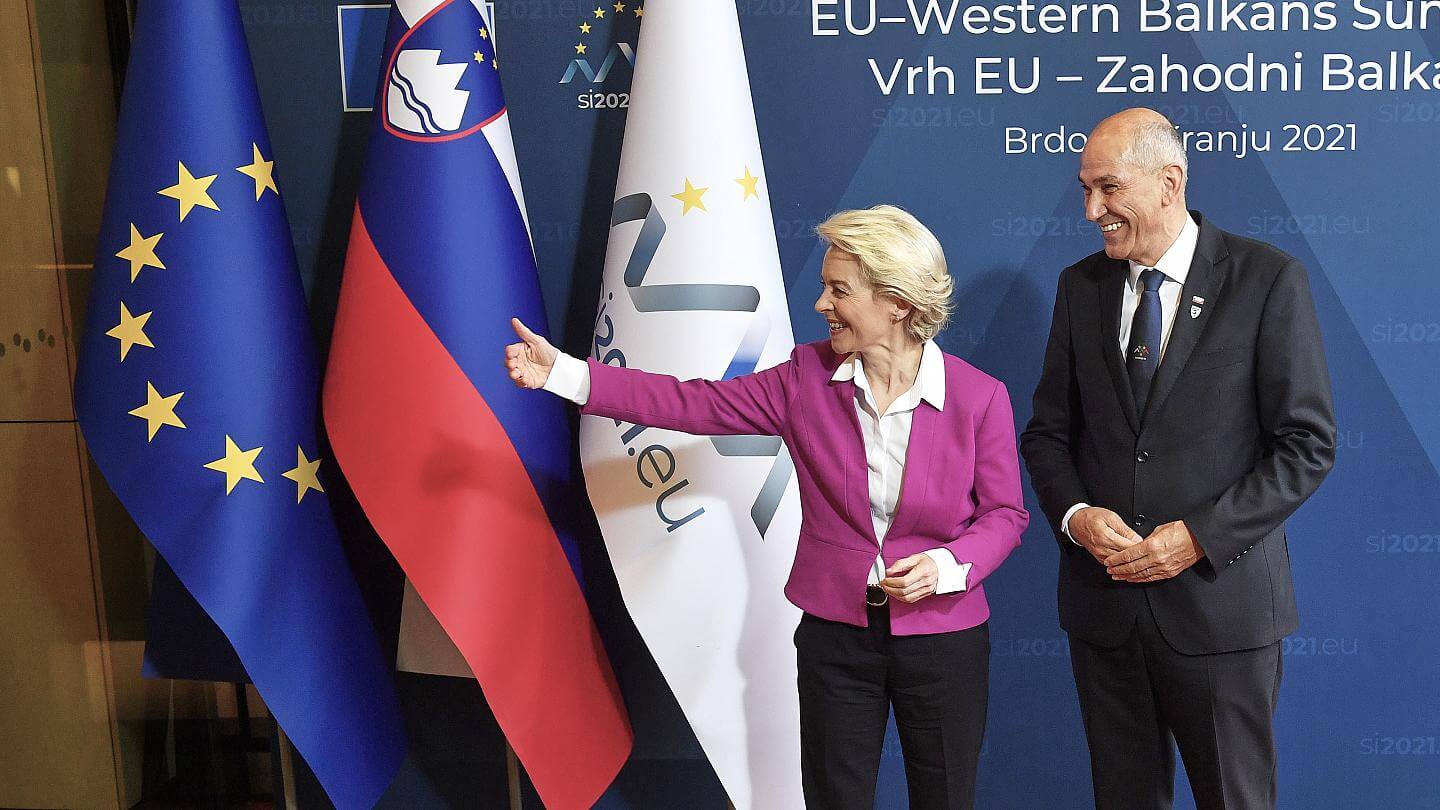On Wednesday, European Union (EU) leaders met in Brdo pri Kranju, Slovenia for the EU-Western Balkans Summit. The meeting was convened by Slovenia, which currently holds the EU’s rotating presidency.
After prolonged deliberations, the EU leaders agreed that Serbia, Montenegro, Bosnia-Herzegovina, North Macedonia, Kosovo, and Albania have a place in the bloc if they fulfil the criteria laid down by the Union. Albania, North Macedonia, Montenegro, and Serbia were officially recognised as candidates for the EU membership, and Bosnia and Kosovo as potential candidates.
The leaders reaffirmed their commitment to integrating the six Western Balkan nations into the bloc but refused to set a firm deadline. European Commission President Ursula von der Leyen said, “The Western Balkans are part of same Europe as the European Union. The EU is not complete without them. My Commission will do its utmost to advance the accession process.”
However, the Commission cannot proceed with the negotiations due to a lack of consensus among EU leaders, who all have the option of vetoing negotiations. Concerning this, European Council President Charles Michel said, “In all frankness, there is discussion among the 27 about our capacity to take in new members.”
German Chancellor Angela Merkel, however, has said she doesn’t support firm deadlines and remarked that accession would only take place once the conditions are met. These conditions include reforms on justice, the fight against corruption and organised crime, and press freedom. The EU has agreed to create a new economic and investment plan for the six Western Balkan nations worth €9 billion ($10.4 billion) to support these reforms.
France has expressed hesitancy over adding new members to the bloc, while Brussels has accused Poland and Hungary of violating EU values. Before the meeting, Albanian Prime Minister Edi Rama blamed the EU’s internal struggle for the lack of enthusiasm for the enlargement process.
Albania and North Macedonia have met the conditions put forth by the EU and are awaiting a formal invitation to launch their accession negotiations. However, these negotiations have been delayed due to Bulgaria exercising its veto over cultural and language disputes with North Macedonia.
“If EU promises don’t materialise, people in the Western Balkans will feel big disappointment that will create huge damage to the European idea of unity and cooperation,” North Macedonian Prime Minister (PM) Zoran Zaev said. Dutch PM Mark Rutte extended support to Zaev and urged Bulgaria to rescind its objection to Bulgaria’s accession.
The leaders of Serbia, Montenegro, Kosovo, Bosnia, and Herzegovina were also present at the Summit. All four countries are at different stages in the EU accession process. The dispute between Serbia and Kosovo, for example, has thwarted their integration efforts.
In a joint declaration released after the Summit, the EU reaffirmed its explicit support for the “European perspective of the Western Balkans and welcomed the commitment of the Western Balkan partners to the European perspective.” Moreover, Slovenia’s Prime Minister, Janez Janša, called the meeting a “milestone” and compared it with the 2003 Thessaloniki summit, when the EU officially recognised the Western Balkan countries as potential candidates for the EU membership.
Bloc Leaders Discuss EU Enlargement Process at Western Balkans Summit
On Wednesday, the leaders of the European Union met in Slovenia for the EU-Western Balkan Summit to discuss the accession of six Western Balkan nations into the bloc.
October 7, 2021

SOURCE: EURONEWS
